Shows

AI Innovations UnleashedAI and the Future of Identity - Episode 3: Can AI Save Dying Languages or Erase Cultural Identity Forever? The Truth About Digital PreservationEpisode 3: Culture vs. Code – Can AI Save Languages or Erase Identity?Every two weeks, a human language disappears forever. With 40% of the world's 7,000 languages endangered, we're facing a linguistic extinction crisis—and AI might be both the problem and the solution.In this episode, Dr. JR talks with fictional expert Dr. Samantha Chen about the intersection of artificial intelligence and cultural preservation. We explore how tech giants like Google and Microsoft are racing to document endangered languages, why indigenous communities are demanding data sovereignty, and whether digital preservation actually saves culture or just creates sophisticated muse...
2025-12-2041 min
De Dépendance PodcastRuha Benjamin on ImaginationIn this episode, acclaimed sociologist and Princeton professor Ruha Benjamin joins De Dépendance Podcast for a compelling conversation on the occasion of her new book, Imagination: A Manifesto. Interviewed by historian Marianne Klerk, Benjamin explores how emerging technologies—especially algorithms and AI—shape inequality, and why we must treat imagination as a powerful site of struggle and possibility. If we hope to dismantle systems shaped by white supremacy, patriarchy, capitalism, and colonialism, she argues, we must first learn to imagine the world anew.Benjamin lays out a poetic yet pragmatic vision for worldbuilding—one that invites listeners t...
2025-12-121h 11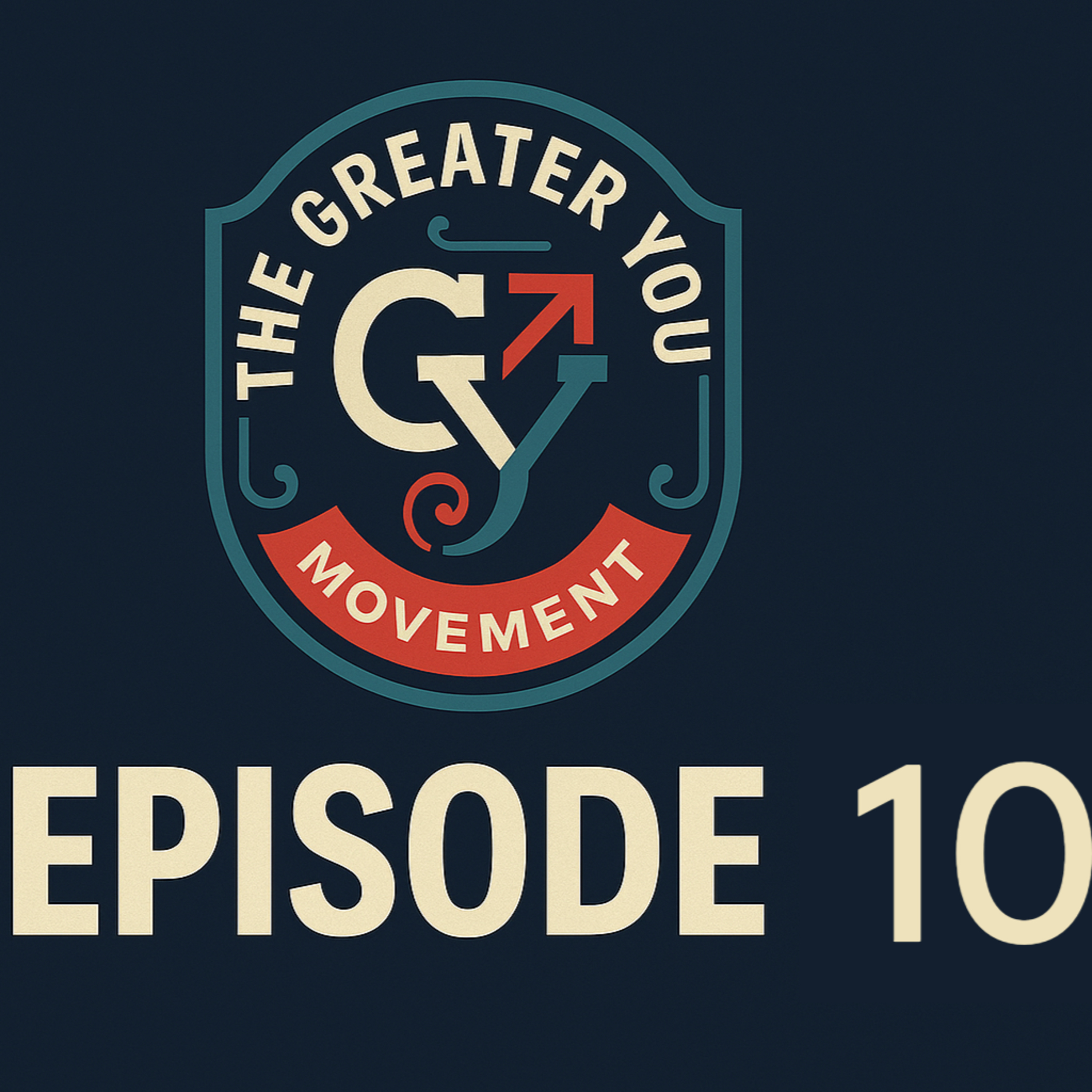
The Greater You MovementRuha Benjamin: The New Jim Code and Algorithmic JusticeThe show provides a detailed overview of the life and work of Ruha Benjamin, a Princeton professor and influential scholar focused on the intersection of race, justice, and technology. The hosts primarily unpack the concept of the “New Jim Code,” which describes how seemingly objective technological systems, such as facial recognition, predictive policing, and biased hiring algorithms, reproduce and amplify existing social inequalities and racial discrimination. Beyond critique, the sources highlight Benjamin’s commitment to abolitionist futures and actionable change, citing her founding of the Ida B. Wells JUST Data Lab and her teaching philosophy, which encourages students to desi...
2025-11-2516 min
IA para HumanosT1E53 Race After Technology – Ruha BenjaminEn el episodio de hoy, hablaremos de: El libro Race After Technology de Ruha Benjamin, que desmonta la ilusión de la neutralidad tecnológica. La obra explica cómo la IA y los algoritmos reflejan y amplifican las desigualdades raciales y sociales existentes, introduciendo el concepto de “racismo codificado”. Se utilizan casos como el sesgo en el reconocimiento facial y en sistemas judiciales. Benjamin hace un llamado a la acción para diseñar innovaciones con una visión ética y equitativa.Usando la IA para hacerte más humano.
2025-10-2507 min
Smart Funny & Black ProductionsSide Effects of Imagination as Resistance (with Ruha Benjamin)This week, we talk to sociologist Ruha Benjamin about finding imagination in unexpected places, and harnessing its power to disrupt the status quo.For more content, subscribe to our Youtube and Patreon!Watch “Views from AmandaLand” Wed 10a EST at Youtube.com/AmandaSealesTV!Listen to the podcast streaming on all podcast platforms.Keep up with my releases and appearances!Subscribe to my newsletter for free at AmandaSeales.comThis is a Smart Funny & Black Production
2025-07-1648 min
Eyes On WhitenessPart 1 of Whiteness is Shape-Shifting, When Fascism Rebrands — Elon Musk and the Aesthetics of WhitenessMini-series Whiteness is Shape-ShiftingPt. 1: When Fascism Rebrands — Elon Musk and the Aesthetics of Whiteness In this episode, Maureen dives into the shape-shifting nature of whiteness—how it survives by mutating into rebellion, reason, and innovation. She takes us into the political spectacle surrounding Elon Musk’s “America Party,” his tech-fueled propaganda, and the cultural silence that followed his Nazi salute on a presidential stage.Drawing on the work of W.E.B. Du Bois and Ruha Benjamin, Maureen traces how whiteness adapts-selling domination through calm logic, clean design, and “free speech.”...
2025-07-1419 min
Black Women Be KnowingThis Indefinite Transactional SocietySend us a textIn this episode, we unpack the dual realities of community and capitalism in the United States. On one hand, we explore the undeniable power of collective action—how safety, support, and real change are most often found when we show up for one another in community. But what happens when allyship becomes more about optics than solidarity?We take a critical look at how relationships in the U.S. are often shaped by a transactional mindset—fueled by a capitalist framework that values productivity over people. From performative allyship to fleeting supp...
2025-04-1947 min
Black Women Be KnowingIt's the Performance For MeSend us a textIn this episode, we unpack how we navigate everything from being hired into spaces that claim to value diversity but lack the necessary infrastructure to support Black teachers, to experiencing racial gaslighting that undermines our professional and personal experiences. We dive deep into how we confront and cope with the toxic behaviors and microaggressions that often go unchecked in these spaces. How do we maintain our sense of self and continue to show up for our students, while also protecting our well-being in environments that were not built with us in mind?
2025-03-2236 min
What Now? with Trevor NoahRIP… D.E.I. with Ruha BenjaminTrevor and Christiana speak with professor, sociologist, and MacArthur Fellowship winner Ruha Benjamin about some of the pressing political and social issues of the day. The three discuss whether DEI initiatives are in fact valuable and how the world will look without them, why universities honor people whose voices they’ve previously tried to silence, and how best to navigate a world that was not built for us. Can the three collectively imagine a better world order? Hosted by Simplecast, an AdsWizz company. See pcm.adswizz.com for information about our collection and use of personal da...
2025-02-131h 20
Life ExaminedThe Black Utopians; vision, history, and legacyRuha Benjamin, sociologist and professor of African American Studies at Princeton University discusses the concept of "us topia" as an alternative between dystopia and utopia, which accomodates shaping the future through collective agency. Benjamin says technology also can play a role in representing the public good and shares the example of Barcelona’s Decidim app which promotes democratic participation in city governance. Aaron Robertson, author and writer talks about the utopian ideal and how it influenced a group of Black thinkers, artists and political leaders in the 1960’s.
Guests:
Ruha Benjamin
Professor of Afri...
2025-02-0953 min
The Tech Policy Press PodcastImagining 2025 and Beyond with Dr. Ruha BenjaminThis week’s guest is Dr. Ruha Benjamin, Alexander Stewart 1886 Professor of African American Studies at Princeton University and Founding Director of the IDA B. WELLS Just Data Lab. Benjamin was recently named a 2024 MacArthur Fellow, and she’s written and edited multiple books, including 2019’s Race After Technology and 2022’s Viral Justice. Last week she joined Justin Hendrix to discuss her latest book, Imagination: A Manifesto, published this year by WW Norton & Company.
2024-12-2240 min
Machines Like UsHow Silicon Valley Monopolized Our ImaginationThe past few months have seen a series of bold proclamations from the most powerful people in tech.In September, Mark Zuckerberg announced that Meta had developed “the most advanced glasses the world had ever seen.” That same day, Open AI CEO Sam Altman predicted we could have artificial super intelligence within a couple of years. Elon Musk has said he’ll land rockets on Mars by 2026.We appear to be living through the kinds of technological leaps we used to only dream about. But whose dreams were those, exactly?In her latest book...
2024-12-0345 min
Legacy: Navigating Family BusinessEpisode 20: Ancestral Healing and Family BusinessJoin me as I dive into another powerful piece of the work that we do here at Legacy. In this episode I answer questions like:What is ancestral healing?How does ancestral healing impact family businesses?What’s possible in family businesses through ancestral healing?And share a few examples from my experience leading my own family’s 6th generation family business. www.thelegacyevolution.com Additional show notes: Seriously Entertaining: Ruha Benjamin on "In Being Bold"...
2024-11-0632 min
Science Magazine PodcastPaleorobotics, revisiting the landscape of fear, and a book on the future of imaginationUsing robots to study evolution, the last installment of our series of books on a future to look forward to, and did reintroducing wolves really restore an ecosystem?First up this week, a new study of an iconic ecosystem doesn’t support the “landscape of fear” concept. This is the idea that bringing back apex predators has a huge impact on the behavior of their prey, eventually altering the rest of the ecosystem. Host Sarah Crespi talks with Contributing Correspondent Virginia Morell about the findings. Next, using bioinspired robotics to explore deep time. Michael...
2024-10-2445 min
DaybreakRuha Benjamin awarded ‘genius’ grant ft. Annie Rupertus — Wednesday, Oct. 2Today, we cover The MacArthur genius grant awarded to Professor Ruha Benjamin, the vice presidential debate and a nationwide dockworkers’ strike.https://www.dailyprincetonian.com/section/news
2024-10-0205 min
Soul Salon with Ayandastood47: Palestine & the words I’m reaching for — Part 1hello soul siblings 🥰, I have MISSED YOU! 🫶🏾 as we bear witness to genocide and support and uplift the student and other protests in response, today I want to share and amplify the work of the WONDER-MAGIC-FUL Dr Ayesha Khan who writes the beautiful, informative, revolutionary Cosmic Anarchy Substack, which I am entirely obsessed with. I am sharing their work imperfectly, reaching for these words, and reaching for you. I send you my love, today and always. Thank you for being here. 🥺💛
ESSAYS mentioned:
Subscribe to Cosmic Anarchy Substack
Learn more about Dr Ayesha K...
2024-06-1243 min
Library TalksRuha Benjamin with Rujeko Hockley: ImaginationSocial and technology critic Ruha Benjamin examines the power of our imagination to challenge systems of oppression and to create a world in which everyone can thrive.
2024-05-1458 min
Discover Your Day With A Vivid Full Audiobook.Imagination by Ruha BenjaminPlease visithttps://thebookvoice.com/podcasts/2/audible/46771to listen full audiobooks.
Title: Imagination
Author: Ruha Benjamin
Narrator: Janina Edwards
Format: mp3
Length: 4 hrs and 16 mins
Release date: 04-30-24
Ratings: 4.5 out of 5 stars, 24 ratings
Genres: Sociology
Publisher's Summary:
Imagination: A Manifesto offers visionary examples and tactics to push beyond the constraints of what we think, and are told, is possible. This book is for anyone who is ready to take to heart Toni Morrison's instruction: "Dream a little before you think."
2024-04-304h 16
Get Hooked On Into A Eye-Opening Full Audiobook While Cooking.Imagination: A Manifesto by Ruha BenjaminPlease visithttps://thebookvoice.com/podcasts/1/audiobook/756241to listen full audiobooks.
Title: Imagination: A Manifesto
Author: Ruha Benjamin
Narrator: Janina Edwards
Format: Unabridged Audiobook
Length: 4 hours 16 minutes
Release date: April 30, 2024
Genres: Social Science
Publisher's Summary:
A world without prisons? Ridiculous. Schools that foster the genius of every child? Impossible. Work that doesn't strangle the life out of people? Naive. A society where everyone has food, shelter, love? In your dreams. Exactly. We have the power to use our imaginations to create a world in which everyone can thrive. But obstacles abound. We have inherited destructive ideas that trap us inside a...
2024-04-304h 16
Feel The Thought-Provoking Full Audiobook Experience!Imagination by Ruha BenjaminPlease visithttps://thebookvoice.com/podcasts/2/audible/46771to listen full audiobooks.
Title: Imagination
Author: Ruha Benjamin
Narrator: Janina Edwards
Format: mp3
Length: 4 hrs and 16 mins
Release date: 04-30-24
Ratings: 4.5 out of 5 stars, 24 ratings
Genres: Sociology
Publisher's Summary:
Imagination: A Manifesto offers visionary examples and tactics to push beyond the constraints of what we think, and are told, is possible. This book is for anyone who is ready to take to heart Toni Morrison's instruction: "Dream a little before you think."
2024-04-304h 16
Grab the Top Full Audiobooks in Non-Fiction, Social ScienceImagination: A Manifesto by Ruha BenjaminPlease visithttps://thebookvoice.com/podcasts/1/audiobook/756241to listen full audiobooks.
Title: Imagination: A Manifesto
Author: Ruha Benjamin
Narrator: Janina Edwards
Format: Unabridged Audiobook
Length: 4 hours 16 minutes
Release date: April 30, 2024
Genres: Social Science
Publisher's Summary:
A world without prisons? Ridiculous. Schools that foster the genius of every child? Impossible. Work that doesn't strangle the life out of people? Naive. A society where everyone has food, shelter, love? In your dreams. Exactly. We have the power to use our imaginations to create a world in which everyone can thrive. But obstacles abound. We have inherited destructive ideas that trap us inside a...
2024-04-304h 16
I Can't Fux With You! Confessions of An Uppity Black WomanEpisode 67: So Fuxing DangerousWe fuxing with rage and pleasure today. This rage card keeps showing up and this rage indeed is warranted. The way the world comes at the #ubw, it is a wonder we have not all ended up in the clink. Instead we have trained ourselves to suppress these feelings and move forward with plastic smiles. We need no physician to tell us that suppression of feeling will not end well. The reinforcement of the suppression of true feeling bleeds into all aspects of our lives. Thus the version the world receives of us is one that is a lie...
2024-04-1953 min
The Inclusion Solution LIVESeeking Justice for All With Dr. Ruha BenjaminIn this kickoff episode for the Justice for All season of The Inclusion Solution LIVE podcast, host Mary-Frances Winters, founder and CEO of The Winters Group, Inc., sits down with Dr. Ruha Benjamin, Alexander Stewart 1886 Professor of African American Studies at Princeton University, founding director of the Ida B. Wells Just Data Lab, and award-winning author of the new book Imagination: A Manifesto. Listen in as they discuss the hard questions that we all need to ask in order to achieve justice in our technology-driven world, from who’s benefitting from so-called advances to who is being left behind and wh...
2024-03-2639 min
The Inclusion Solution LIVESeeking Justice for All With Dr. Ruha BenjaminIn this kickoff episode for the Justice for All season of The Inclusion Solution LIVE podcast, host Mary-Frances Winters, founder and CEO of The Winters Group, Inc., sits down with Dr. Ruha Benjamin, Alexander Stewart 1886 Professor of African American Studies at Princeton University, founding director of the Ida B. Wells Just Data Lab, and award-winning author of the new book Imagination: A Manifesto. Listen in as they discuss the hard questions that we all need to ask in order to achieve justice in our technology-driven world, from who’s benefitting from so-called advances to who is being left behind and wh...
2024-03-2639 min
The Inclusion Solution LIVESeeking Justice for All With Dr. Ruha BenjaminIn this kickoff episode for the Justice for All season of The Inclusion Solution LIVE podcast, host Mary-Frances Winters, founder and CEO of The Winters Group, Inc., sits down with Dr. Ruha Benjamin, Alexander Stewart 1886 Professor of African American Studies at Princeton University, founding director of the Ida B. Wells Just Data Lab, and award-winning author of the new book Imagination: A Manifesto. Listen in as they discuss the hard questions that we all need to ask in order to achieve justice in our technology-driven world, from who’s benefitting from so-called advances to who is being left behind and wh...
2024-03-2639 min
The StacksEp. 308 Viral Justice by Ruha Benjamin -- The Stacks Book Club (Uché Blackstock)Physician and bestselling author Uché Blackstock returns to discuss the memoir-manifesto Viral Justice: How We Grow the World We Want by Ruha Benjamin. We talk about viral justice and viral injustice, and how American individualism is one of the biggest challenges to the work of abolition. We also unpack why we struggle with owning the power we have, and how viral justice can show up in our communities, from education to labor and beyond.Be sure to listen to the end of today’s episode to find out what our March book club pick will be.Y...
2024-02-2859 min
Free Library PodcastRuha Benjamin | Imagination: A ManifestoIn conversation with Shantrelle Lewis
Ruha Benjamin is the author of Race After Technology: Abolitionist Tools for the New Jim Code, a ''galvanizing'' and ''inventive and wide-ranging'' (The Nation) look at how new technologies reinforce social inequities; and Viral Justice: How We Grow the World We Want, a pragmatic yet poetic vision of the ways in which our minor everyday choices can add up to larger societal growth. Also the author of many scholarly publications, she is a professor of African American studies at Princeton University, where she is the founding director of the Ida B. Wells Just Data Lab. Benja...
2024-02-0955 min
Think Outside The BlueBoxThe A.I. Data Frontier: The E. Veal EpisodeIn this episode, host Anthony Rivera engages with data activist E. Veal in a thought-provoking discussion on the impact of data in our lives, the intricacies of artificial intelligence, and the importance of data diversity and AI ethics. Veal, with her rich background in AI, sheds light on the dual nature of data as both a tool for progress and a potential source of bias, emphasizing the need for ethical considerations in AI development and the critical role of diversity in shaping a more inclusive technological future.
Think Outside The BlueBox Podcast SEASON # 2 EP #11
Guest: E. Veal
www.eveal...
2024-02-0859 min
Poured OverRuha Benjamin on IMAGINATION: A MANIFESTO "My writing is always trying to open that up and to say — you can start here; you can start now." Imagination: A Manifesto by Ruha Benjamin reminds us that our imaginations already know what a better world looks like. From education to challenging our systems of oppression and more, this insightful work shows a new place for us all to start from. Benjamin joins us to talk about the split between imagination and technology, changing our narratives to tell new stories, the importance of community and more with Miwa Messer, host of Poured Over. This epis...
2024-01-3047 min
TED TechIs technology our savior — or our slayer? | Ruha BenjaminWhen it comes to technology, we're often presented with two contrasting visions of the future: one where technology fulfills all our desires, and another where it leads to chaos and conflict. Sociologist Ruha Benjamin is here with a more radical vision of the future — one where humanity isn't saved or slayed by technology, but rather uses it to uplift ordinary people and make things like health care and housing for all a reality. After the talk, Sherrell expands on how tech improves individual lives, and communities at large. Hosted on Acast. See acast.com/pr...
2023-12-2216 min
Race/RemixEpisode 1 When Justice Goes Viral: Ruha BenjaminHow can we “act selfishly for our own humanity”? How might we recalibrate institutions so they reflect how our individual futures are intertwined? Explore these questions and more in a timely discussion with sociologist Ruha Benjamin. She takes on racism in education, healthcare, the arts and beyond in this riveting conversation.
Currently, Dr. Benjamin is an associate professor of African American Studies at Princeton University. Her book, Viral Justice, offers an inspiring vision of change.
2023-12-0234 min
TED Talks DailyIs technology our savior — or our slayer? | Ruha BenjaminWhen it comes to technology, we're often presented with two contrasting visions of the future: one where technology fulfills all our desires, and another where it leads to chaos and conflict. Sociologist Ruha Benjamin is here with a more radical vision of the future — one where humanity isn't saved or slayed by technology, but rather uses it to uplift ordinary people and make things like health care and housing for all a reality. Hosted on Acast. See acast.com/privacy for more information.
2023-11-0612 min
Disrupted60 years after the March on Washington, the fight for equity continuesThis hour, we’re exploring the history of civil rights for Black Americans and how people can create change now. Professor Adriane Lentz-Smith gives us some context around the 60th anniversary celebration of the March on Washington for Jobs and Freedom, which happened on the same day as the shooting in Jacksonville. And Professor Ruha Benjamin, who is being recognized with this year's Stowe Prize, talks about her book Viral Justice: How We Grow the World We Want. She discusses the small things around us that produce both problems and solutions, and she explains why racism hurts even those it...
2023-09-2049 min
How To Citizen with BaratundeJustice Begins with Imagination (Ruha Benjamin)According to Ruha Benjamin, we’re living inside someone else’s imagination. An imagination that limits our ability to build a more just, liberated world. So, how do we take back our agency and begin to seed something different? Baratunde talks with Princeton professor and founding director of the Just Data Lab, Ruha Benjamin to find out. SHOW ACTIONS Internally Reflect - Bear witness and create a ripple This one is inspired from Ruha’s book Viral Justice: How We Grow the World We Want which says: “…bear witness to the weight of in...
2023-03-2352 min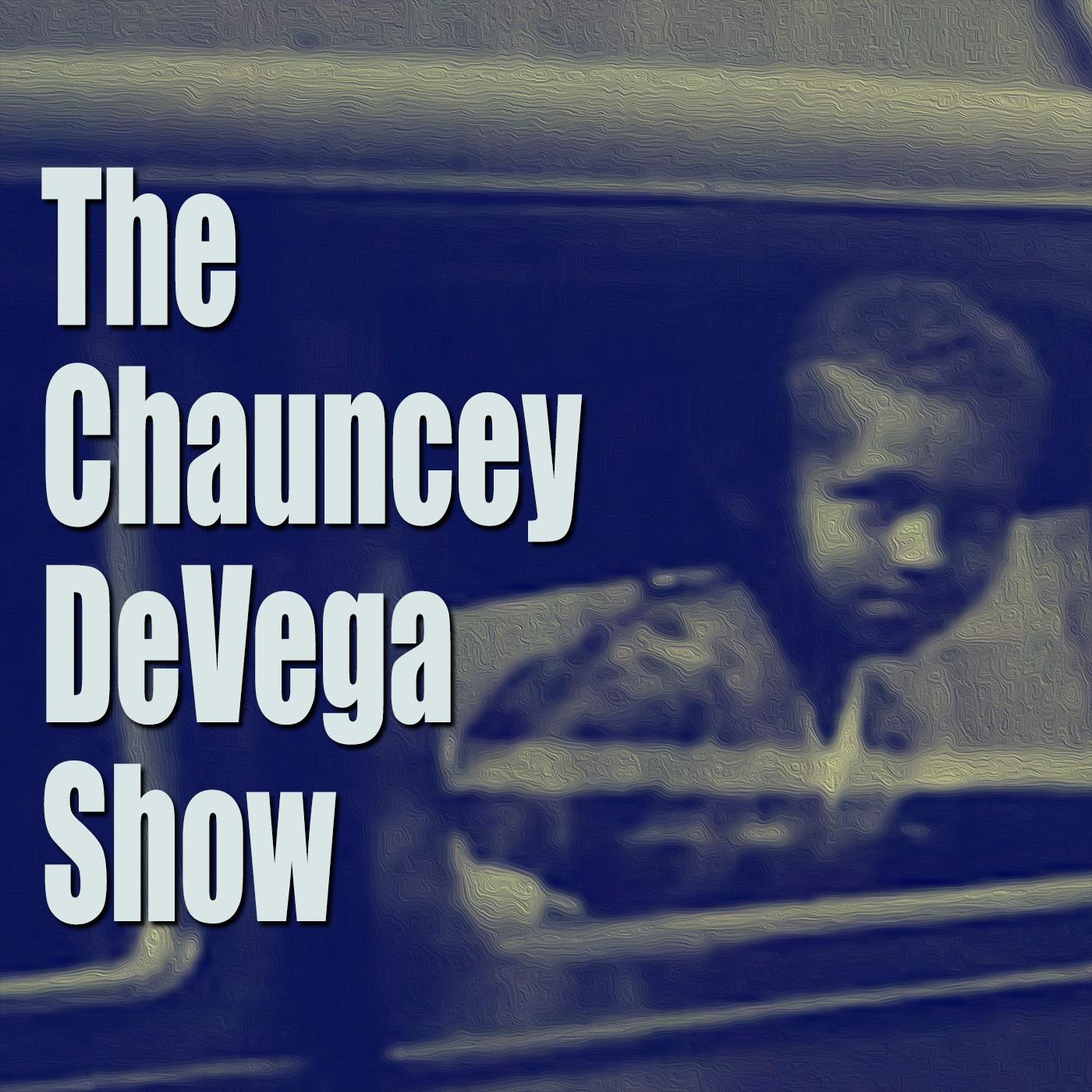
The MachinistEp. 378: Ruha Benjamin on the Digital Divide and the "New Jim Code"/Did You Know That People are "Racist" Against Black Robots? Podcast: The Chauncey DeVega Show (LS 46 · TOP 1% what is this?)Episode: Ep. 378: Ruha Benjamin on the Digital Divide and the "New Jim Code"/Did You Know That People are "Racist" Against Black Robots?Pub date: 2023-01-31Get Podcast Transcript →powered by Listen411 - fast audio-to-text and summarizationThere are two guests on this special January 2023 fundraising episode of The Chauncey DeVega Show. ***Your generosity and support help to sustain the podcast and to keep it free, not behind a paywall and available to all listeners.*** Ruh...
2023-02-082h 20
The Chauncey DeVega ShowRuha Benjamin on the Digital Divide and the "New Jim Code"/Did You Know That People are "Racist" Against Black Robots?There are two guests on this special January 2023 fundraising episode of The Chauncey DeVega Show. ***Your generosity and support help to sustain the podcast and to keep it free, not behind a paywall and available to all listeners.*** Ruha Benjamin is a sociologist and a Professor in the Department of African American Studies at Princeton University. She is the author of several books including Race After Technology and Viral Justice: How We Grow the World We Want. She explains how technology is not socially or politically neutral and actually does the work of...
2023-01-312h 20
Factually! with Adam ConoverViral Justice with Ruha BenjaminWhen the problems facing us are so massive and systemic, how can we ever hope to address them as individuals? This week’s guest, Ruha Benjamin, joins Adam to explain how small actions for justice can become contagious and create change on a larger scale. Pick up a copy of Ruha’s book at http://factuallypod.com/books
Learn more about your ad choices. Visit megaphone.fm/adchoices
See Privacy Policy at https://art19.com/privacy and California Privacy Notice at https://art19.com/privacy#do-not-sell-my-info.
2023-01-041h 09
Soul Salon with Ayandastood7: viral justice Ft. Ruha BenjaminI am so thrilled and honored to be in conversation with Ruha Benjamin, a Professor of African American studies at Princeton University, founding director of the Ida B. Wells JUST Data Lab and author of three books, Viral Justice (2022), Race After Technology (2019), and People’s Science (2013), and editor of Captivating Technology (2019). Today, we discuss her incredible latest book, Viral Justice: How We Grow the World We Want. I am completely obsessed with this book. I feel it is an urgent read for all of us who want to integrate the structural and the individual, the academic and the po...
2022-12-1555 min
Town Hall Seattle Civics Series301. Ruha Benjamin with Jazmyn Scott and Vivian Phillips: How We Grow the World We WantCan the choices you make on a daily basis transform society? Sociologist and Princeton professor Dr. Ruha Benjamin thinks so, and has the research to support the idea. Dr. Benjamin's groundbreaking research on race, technology, and justice spanned years and focused primarily on larger, structural changes. But the scourges of COVID-19 and anti-Black police violence inspired Dr. Benjamin to rethink the importance of small, individual actions. Her new book Viral Justice offers a sweeping, deeply personal exploration of how we can shape our world through the choices we make on a daily basis. Part memoir, p...
2022-11-031h 09
RSA EventsViral justice – the big impact of small changeSmall change can have a big impact on our lives. Through knock-on effects and cumulative action, little shifts have the potential for great harm and great good. And when it is easy to feel overwhelmed at the scale of change needed to solve big, structural problems, we need to recognise the value of practical change we can enact on a daily basis.In recent times, the twin plagues of Covid-19 and anti-Black police violence have caused Ruha Benjamin to rethink the importance of these every day, individual actions across our lives and societies - from the impact...
2022-11-031h 01
Commonwealth Club of California PodcastRuha Benjamin: Viral JusticeRuha Benjamin has been called one of the country's most insightful scholars on issues related to race, technology and justice. In her new book, Viral Justice, Benjamin explores—in a very personal way—two social issues that have received extensive attention over the past two years: police violence and the pandemic of COVID-19. For Prof. Benjamin, these two issues existed in tandem for a reason: they are both public health crises that festered and continue to fester because they are both built on unjust systems.Benjamin examines the converging plagues of COVID-19 and police violence, mapping the multip...
2022-10-281h 02
Skylight Books Podcast SeriesSKYLIT: Ruha Benjamin, ”VIRAL JUSTICE” w/ Lance MorganLong before the pandemic, Ruha Benjamin was doing groundbreaking research on race, technology, and justice, focusing on big, structural changes. But the twin plagues of COVID-19 and anti-Black police violence inspired her to rethink the importance of small, individual actions. Part memoir, part manifesto, Viral Justice is a sweeping and deeply personal exploration of how we can transform society through the choices we make every day.
Join us for a conversation between Benjamin and Lance Morgan.
_______________________________________________
Produced by Nat Freeman, Lance Morgan, & Michael Kowaleski.
Theme: "I Love All My Friends," an unreleased demo by Fragile Gang.
2022-10-1752 min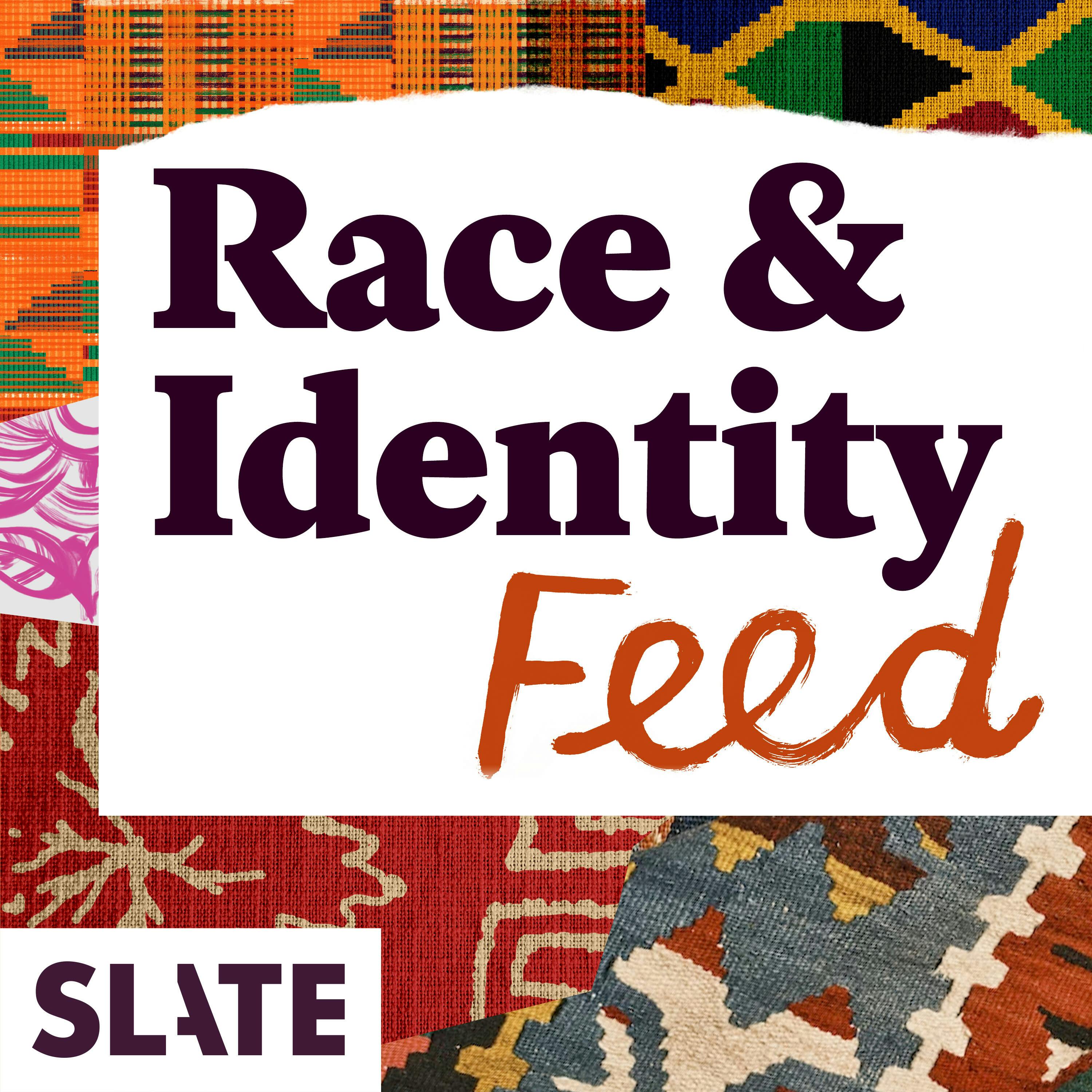
Slate Race and IdentityA Word: How Tech Can Help—or Harm—Racial JusticeFrom Ferguson to Minneapolis, protests against racist policing have been catalyzed by videos of the brutality being spread on social media. On today’s A Word, Jason Johnson sits down with Dr. Ruha Benjamin to talk about her book, Viral Justice: How We Grow the World We Want, and where social sciences and technology intersect. Guest: Ruha BenjaminYou can skip all the ads in A Word by joining Slate Plus. Sign up now at slate.com/awordplus for just $1 for your first month. Learn mor...
2022-10-1430 min
Slate BooksA Word: How Tech Can Help—or Harm—Racial JusticeFrom Ferguson to Minneapolis, protests against racist policing have been catalyzed by videos of the brutality being spread on social media. On today’s A Word, Jason Johnson sits down with Dr. Ruha Benjamin to talk about her book, Viral Justice: How We Grow the World We Want, and where social sciences and technology intersect. Guest: Ruha BenjaminYou can skip all the ads in A Word by joining Slate Plus. Sign up now at slate.com/awordplus for just $1 for your first month. Learn mor...
2022-10-1430 min
A Word … with Jason JohnsonHow Tech Can Help—or Harm—Racial JusticeFrom Ferguson to Minneapolis, protests against racist policing have been catalyzed by videos of the brutality being spread on social media. On today’s A Word, Jason Johnson sits down with Dr. Ruha Benjamin to talk about her book, Viral Justice: How We Grow the World We Want, and where social sciences and technology intersect. Guest: Ruha BenjaminYou can skip all the ads in A Word by joining Slate Plus. Sign up now at slate.com/awordplus for just $1 for your first month. Learn mor...
2022-10-1430 min
Slate TechnologyA Word: How Tech Can Help—or Harm—Racial JusticeFrom Ferguson to Minneapolis, protests against racist policing have been catalyzed by videos of the brutality being spread on social media. On today’s A Word, Jason Johnson sits down with Dr. Ruha Benjamin to talk about her book, Viral Justice: How We Grow the World We Want, and where social sciences and technology intersect. Guest: Ruha BenjaminYou can skip all the ads in A Word by joining Slate Plus. Sign up now at slate.com/awordplus for just $1 for your first month. Learn mor...
2022-10-1430 min
Connect to High Quality Audiobooks in High QualityViral Justice: How We Grow the World We Want (Authored by Ruha Benjamin)Please visit https://thebookvoice.com/podcasts/1/audiobook/619382 to listen full audiobooks.
Title: Viral Justice: How We Grow the World We Want
Author: Ruha Benjamin
Narrator: Ruha Benjamin
Format: Unabridged Audiobook
Length: 13 hours 25 minutes
Release date: October 11, 2022
Ratings: Ratings of Book: 4.33 of Total 3
Ratings of Narrator: 5 of Total 2
Genres: Social Science
Publisher's Summary: This audiobook narrated by Ruha Benjamin offers an inspiring and uniquely personal vision of how we can build a more just world one small change at a time 'A book as urgent as the moment that produced it.'—Jelani Co...
2022-10-111h 25
Start A Breakthrough Full Audiobook On Your Commute.Viral Justice by Ruha BenjaminPlease visithttps://thebookvoice.com/podcasts/2/audible/41139to listen full audiobooks.
Title: Viral Justice
Author: Ruha Benjamin
Narrator: Ruha Benjamin
Format: mp3
Length: 13 hrs and 24 mins
Release date: 10-11-22
Ratings: 5 out of 5 stars, 62 ratings
Genres: Economics
Publisher's Summary:
Long before the pandemic, Ruha Benjamin was doing groundbreaking research on race, technology, and justice, focusing on big, structural changes. But the twin plagues of COVID-19 and anti-Black police violence inspired her to rethink the importance of small, individual actions. Part memoir, part manifesto, Viral Justice is a sweeping and deeply personal exploration of how we can transform society through the choices...
2022-10-111h 24
Listen to Best Full Audiobooks in Non-Fiction, Social ScienceViral Justice: How We Grow the World We Want by Ruha BenjaminPlease visithttps://thebookvoice.com/podcasts/1/audiobook/619382to listen full audiobooks.
Title: Viral Justice: How We Grow the World We Want
Author: Ruha Benjamin
Narrator: Ruha Benjamin
Format: Unabridged Audiobook
Length: 13 hours 25 minutes
Release date: October 11, 2022
Ratings: Ratings of Book: 4.33 of Total 3
Ratings of Narrator: 5 of Total 2
Genres: Social Science
Publisher's Summary:
This audiobook narrated by Ruha Benjamin offers an inspiring and uniquely personal vision of how we can build a more just world one small change at a time 'A book as urgent as the moment that produced it.'—Jelani Cobb, Columbia Journalism School Long before the pandemic, Ruha Be...
2022-10-111h 25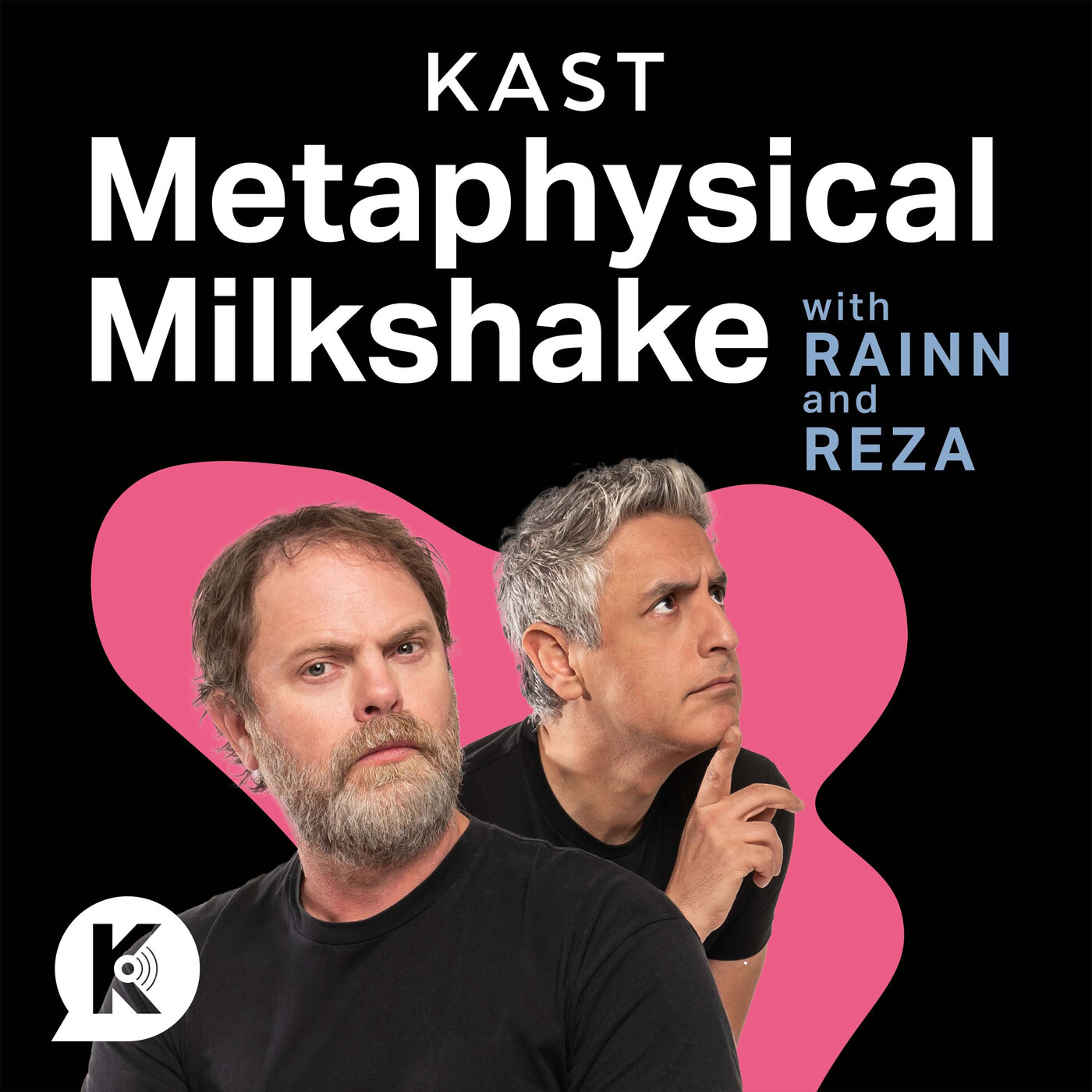
Metaphysical Milkshake with Rainn & RezaRuha Benjamin: How Do You Build A Movement?Rainn and Reza sit down with Sociologist and Professor, Ruha Benjamin, to ponder, "How Do You Build A Movement?"
https://www.instagram.com/rainnwilson/
https://www.instagram.com/rezaaslan/?hl=en
Special Thanks To Our Sponsors:
Betterhelp
When you want to be a better problem solver, therapy can get you there. Visit http://www.BetterHelp.com/MILKSHAKE today to get 10% off your first month.See omnystudio.com/listener for privacy information.
2022-10-0459 min
Changing the Business of LearningStella Lee on the role of ethics in EdTechStella Lee’s first love was actually painting – something she still enjoys to this day. But it was only after getting a PhD in Computer Science that her interest in learning technologies began. From there, she spent a few years working corporate learning before taking the leap to found her own consulting company, Paradox Learning. Today, with 20 years of experience under her belt, she works on enterprise-wide learning strategy and governance, digital ethics for learning, AI and e-learning applications, LMS design, evaluation and learning analytics.
In our most recent episode of Untold Stories in Learning & Development, Stella talk...
2022-05-2439 min
Zora's DaughtersS2, E13 No Body is NormalSometimes it's love and light, sometimes it's love and light that ass up! In this episode, we're joined by founder, inventor, and curator Adero Knott to discuss accessibility, disability, technology, and the ableist joke Chris Rock made that got him slapped at the Oscars.
What's the Word? Accessibility. We define the term, explain how we prioritize accessibility, discuss its connection to disability justice, and talk about norms and how they harm all of us.
What We're Reading. "Engineered Inequity" in Race After Technology: Abolitionist Tools for the New Jim Code by Ruha Benjamin. Technology is o...
2022-03-301h 27
University of Minnesota PressHow institutionalized racism shapes health in the 21st century: Anne Pollock with Ruha BenjaminSICKENING is a book that examines the unconscionable disparity in health outcomes between Black and white Americans. Author Anne Pollock of King’s College London takes readers through anti-Black racism operating in healthcare: from the spike in chronic disease after Hurricane Katrina to the lack of protection for Black residents during the Flint water crisis—and even the life-threatening childbirth experience for tennis star Serena Williams. Ruha Benjamin of Princeton University joins Pollock in conversation. Pollock is professor of global health and social medicine at King’s College London. She is author of ‘Sickening: Anti-Blac...
2021-11-1140 min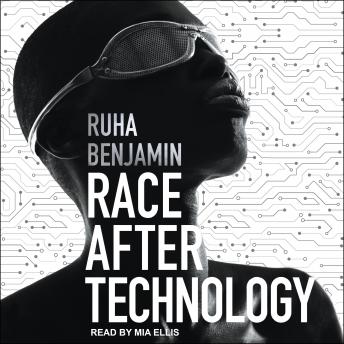
Press Play On Your Ears To A Riveting Full Audiobook.Race After Technology: Abolitionist Tools for the New Jim Code by Ruha BenjaminPlease visithttps://thebookvoice.com/podcasts/1/audiobook/526869to listen full audiobooks.
Title: Race After Technology: Abolitionist Tools for the New Jim Code
Author: Ruha Benjamin
Narrator: Mia Ellis
Format: Unabridged Audiobook
Length: 6 hours 38 minutes
Release date: September 14, 2021
Ratings: Ratings of Book: 4 of Total 5
Ratings of Narrator: 5 of Total 2
Genres: Social Science
Publisher's Summary:
From everyday apps to complex algorithms, Ruha Benjamin cuts through tech-industry hype to understand how emerging technologies can reinforce White supremacy and deepen social inequity. Benjamin argues that automation, far from being a sinister story of racist programmers scheming on the dark web, has the potential to hide...
2021-09-146h 38
Immerse Yourself In This Best-Selling Full Audiobook And Feel The Difference.Race After Technology: Abolitionist Tools for the New Jim Code by Ruha BenjaminPlease visithttps://thebookvoice.com/podcasts/1/audiobook/526869to listen full audiobooks.
Title: Race After Technology: Abolitionist Tools for the New Jim Code
Author: Ruha Benjamin
Narrator: Mia Ellis
Format: Unabridged Audiobook
Length: 6 hours 38 minutes
Release date: September 14, 2021
Ratings: Ratings of Book: 4 of Total 5
Ratings of Narrator: 5 of Total 2
Genres: Current Affairs, Law, & Politics
Publisher's Summary:
From everyday apps to complex algorithms, Ruha Benjamin cuts through tech-industry hype to understand how emerging technologies can reinforce White supremacy and deepen social inequity. Benjamin argues that automation, far from being a sinister story of racist programmers scheming on the dark web, has the potential...
2021-09-146h 38
Embrace The Most Immersive Full Audiobook Today!Race After Technology by Ruha BenjaminPlease visithttps://thebookvoice.com/podcasts/2/audible/17388to listen full audiobooks.
Title: Race After Technology
Author: Ruha Benjamin
Narrator: Mia Ellis
Format: mp3
Length: 6 hrs and 38 mins
Release date: 09-14-21
Ratings: 4.5 out of 5 stars, 113 ratings
Genres: History & Culture
Publisher's Summary:
From everyday apps to complex algorithms, Ruha Benjamin cuts through tech-industry hype to understand how emerging technologies can reinforce white supremacy and deepen social inequity. Benjamin argues that automation, far from being a sinister story of racist programmers scheming on the dark web, has the potential to hide, speed up, and deepen discrimination while appearing neutral and even benevolent when...
2021-09-146h 38
Listen to Best Full Audiobooks in Non-Fiction, Social ScienceRace After Technology: Abolitionist Tools for the New Jim Code by Ruha BenjaminPlease visithttps://thebookvoice.com/podcasts/1/audiobook/526869to listen full audiobooks.
Title: Race After Technology: Abolitionist Tools for the New Jim Code
Author: Ruha Benjamin
Narrator: Mia Ellis
Format: Unabridged Audiobook
Length: 6 hours 38 minutes
Release date: September 14, 2021
Ratings: Ratings of Book: 4 of Total 5
Ratings of Narrator: 5 of Total 2
Genres: Social Science
Publisher's Summary:
From everyday apps to complex algorithms, Ruha Benjamin cuts through tech-industry hype to understand how emerging technologies can reinforce White supremacy and deepen social inequity. Benjamin argues that automation, far from being a sinister story of racist programmers scheming on the dark web, has the potential to hide...
2021-09-146h 38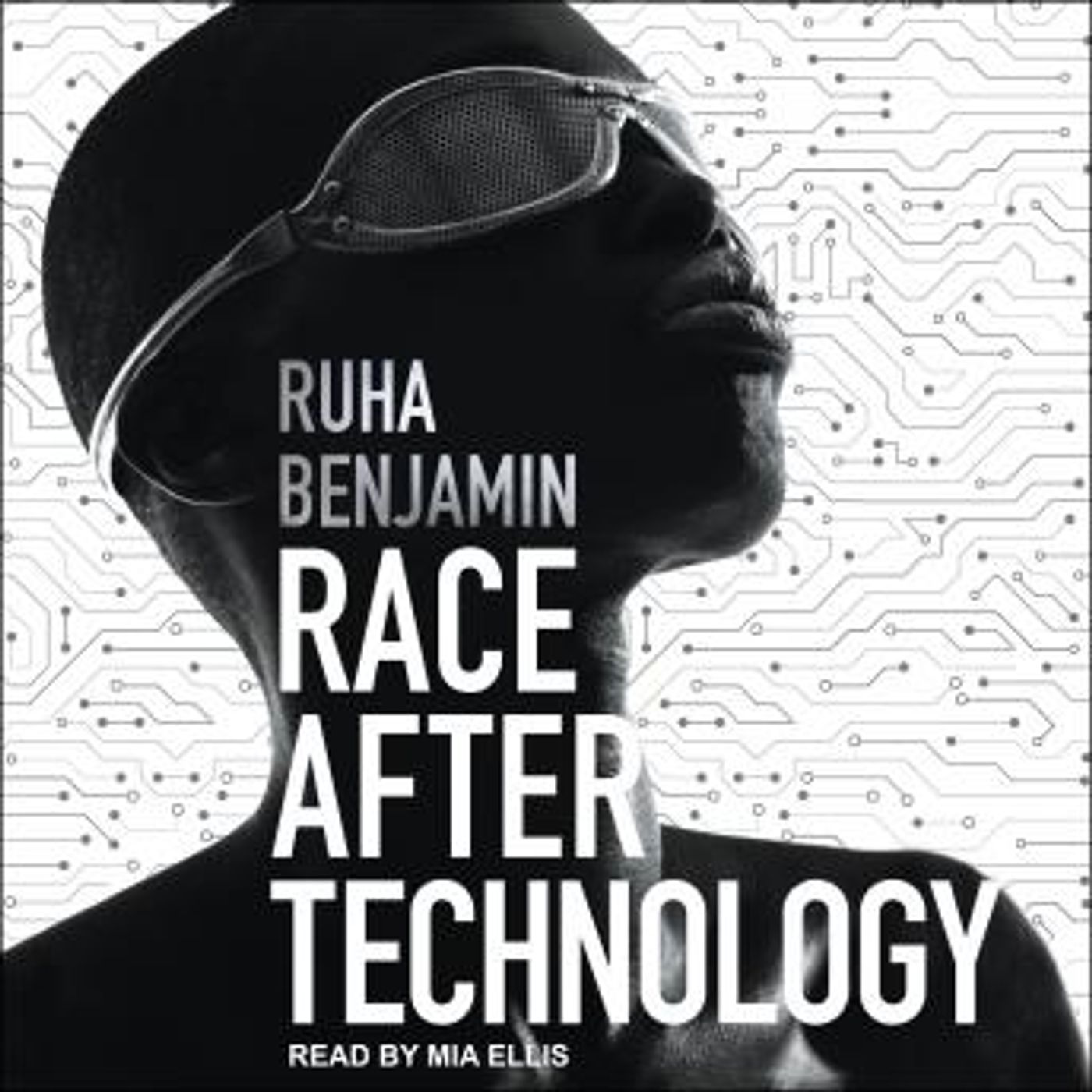
Access Unmissable Audiobooks in Non-Fiction, Current Affairs, Law, & PoliticsRace After Technology: Abolitionist Tools for the New Jim Code by Ruha BenjaminPlease visit https://thebookvoice.com/podcasts/1/audiobook/526869 to listen full audiobooks. Title: Race After Technology: Abolitionist Tools for the New Jim Code Author: Ruha Benjamin Narrator: Mia Ellis Format: Unabridged Audiobook Length: 6 hours 38 minutes Release date: September 14, 2021 Ratings: Ratings of Book: 4 of Total 5 Ratings of Narrator: 5 of Total 2 Genres: Current Affairs, Law, & Politics Publisher's Summary: From everyday apps to complex algorithms, Ruha Benjamin cuts through tech-industry hype to understand how emerging technologies can reinforce White supremacy and deepen social inequity. Benjamin argues that automation, far from being a sinister story of racist programmers scheming on the dark web, has the...
2021-09-1430 min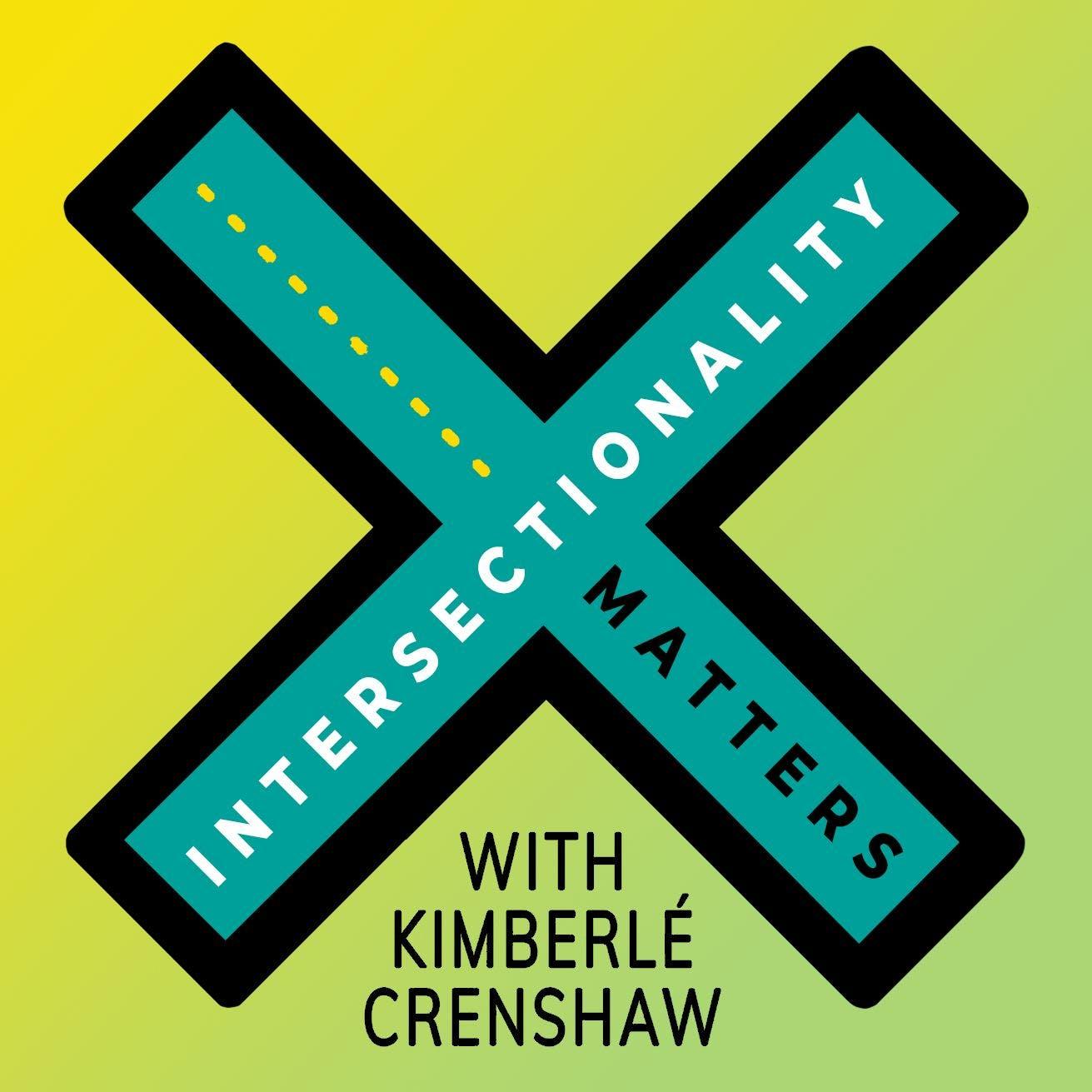
Over The Wire Podcast35. The Story Of Us (Part 2) Podcast: Intersectionality Matters! (LS 56 · TOP 0.5% what is this?)Episode: 35. The Story Of Us (Part 2)Pub date: 2021-04-16Notes from Over The Wire Podcast:What is Hollywood’s role in writing and rewriting history? How are these scripted stories reproduced and popularised? How can we begin writing new stories that tell our full story?Get Podcast Transcript →powered by Listen411 - fast audio-to-text and summarizationWith Bryan Stevenson, Viet Thanh Nguyen, Ruha Benjamin, and David Blight
In the second half of a two-part episode on the stories that...
2021-04-3045 min
Intersectionality Matters!35. The Story Of Us (Part 2)With Bryan Stevenson, Viet Thanh Nguyen, Ruha Benjamin, and David Blight
In the second half of a two-part episode on the stories that shape our understanding of America, Kimberlé Crenshaw and special guests explore the ways that film and other technologies have reproduced and popularized these dominant stories. The episode examines Hollywood’s role in writing and rewriting history, and asks how we can begin writing new stories that tell the full story of us.
With:
RUHA BENJAMIN- Professor of American Studies, Princeton University; Author, Race After Technology
DAVID BLIGHT - Professor of American History, Yale University; Author, Frederick Douglass: Proph...
2021-04-1645 min
consideranew (+ Season 2 cohost, Dr. Jane Shore of School of Thought)Season 1: Episode 39 - Cathy O'Neil: When decisions are made about us, without us"Weapons of Math Destruction: How Big Data Increases Inequality and Threatens Democracy" by Cathy O'Neil (2017) (http://bit.do/fP7HT)"... the world is dominated by automatic systems chomping away on our error-ridden dossiers. They urgently require the context, common sense, and fairness that only humans can provide. However, if we leave this issue to the marketplace, which prizes efficiency, growth, and cash flow (while tolerating a certain degree of errors), meddling humans will be instructed to stand clear of the machinery" (p. 155).References:Cathy O'Neil (https://twitter.com/mathbabedotorg)
2021-03-2906 min
Haymarket Books LivePolicing Without the Police- Race, Technology and the New Jim Code (7-8-20)Join us for a virtual teach in on police, surveillance, and technology with Ruha Benjamin and Dorothy Roberts
----------------------------------------------------
With calls for “defunding police” on the rise, invisible, tech-mediated surveillance continues to penetrate every area of our lives – workplaces, schools, hospitals, and of course policing itself.
How does this relate to a longer history of surveilling Black life and how are people mobilizing against this New Jim Code?
From everyday apps to complex algorithms, technology has the potential to hide, speed, and deepen discrimination, while appearing neutral and even benevolent when compared to racist practices of a previous era.
In this c...
2021-03-041h 28
The Reel EthicsEthics and The SearchIn this episode The Reel Ethics discusses the ethical dilemma that surrounds search engines; unethical and discriminatory practices of tech companies in what author Safiya Umoja Noble calls the “Algorithms of Oppression”. So, listen as we look at how ratings and reviews determine one’s worth and access to the finer things in life based off of data and perception, controlled by bias algorithms and the people that design and develop them. As we talk with San Diego based photographer, activist and educator Alejandro Martinez founder of Tira Together arts project in Tijuana. In this Episode “Ethics and The Search”...
2021-02-1124 min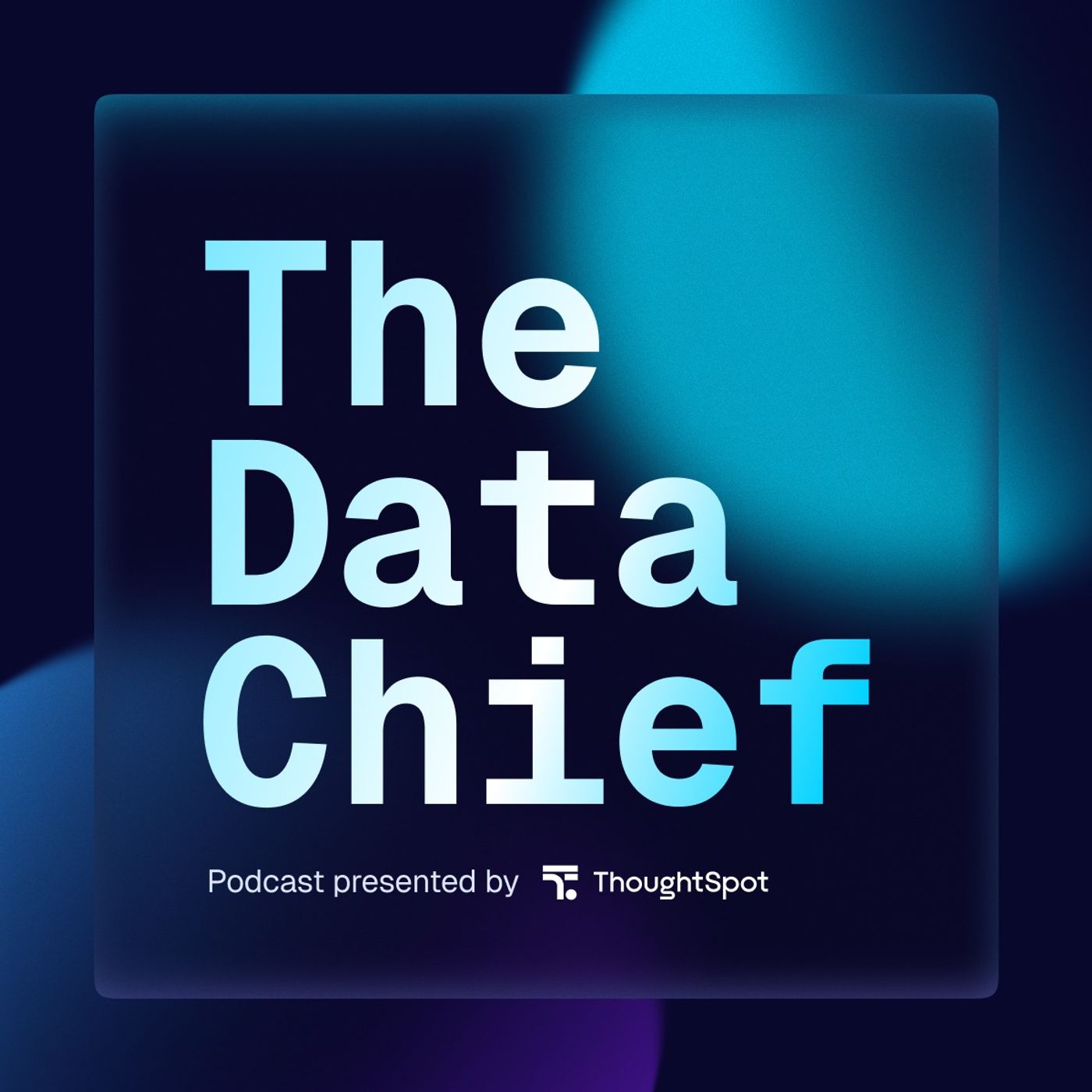
The Data ChiefPrinceton University's Ruja Benjamin on Bias in Data and A.I.Joining Cindi today is Ruha Benjamin, a professor of African American Studies at Princeton University and the founding director of the IDA B. WELLS Just Data Lab. She has studied the social dimensions of science, technology, and medicine for over 15 years and speaks widely on issues of innovation, equity, health, and justice in the U.S. and globally. Ruha is the author of Race After Technology: Abolitionist Tools for the New Jim Code and People's Science: Bodies and Rights on the Stem Cell Frontier, and the editor of Captivating Technology: Race, Carceral Technoscience, and Liberatory Imagination in Everyday Life.
2021-02-0339 min
A Culture Made of AlgorithmsTHE GODDARD LINKUP: @EedsMckenzie on TikTok, Surveillance, Racism in Tech and Ruha Benjamin.Going through the archive this week, I've come good on a promise to share with you a previously unreleased, juicy portion of content by Eeds Mckenzie, Co-Host of Don't Alert the Stans Podcast and Host of AndWithTech, UX/UI Designer and overall tech fanatic. We talk about Tiktok, social media and surveillance, Ruha Benjamin's Race After Technology and I pretend to be a Dolphin with echolocation.
Find his podcasts here:
AndWithTech and Don't Alert the Stans
and his Twitter: @EedsMckenzie
Find ME and the podcast on socials:
Twitter: @ACMOAPOD...
2020-12-1121 min
Growing Down: A Progressive Integral PodcastHealing and Wholeness Through and Beyond Racial Identity, ft. Ashby Goodrum & Brad KershnerBrad Kershner is a school leader and independent scholar, and the author of Understanding Educational Complexity: Integrating Practices and Perspectives for 21st Century Leadership. His research, teaching, and writing cover a wide range of interdependent topics, including education, leadership, parenting, race, technology, metamodernism, integral theory, meditation, complexity, and developmental psychology. You can learn more about his work and access recordings of his guided meditations on Patreon.
ashby goodrum (preferred pronouns: they/we/us) works as an advanced practice nurse in primary and maternity care settings with significant experience as a bedside nurse/psychopomp and in midwifery. Some...
2020-12-021h 42
The Stack Overflow PodcastWhy developers are increasingly demanding ethics in techYou can find more about Resner here. Learn more about the topics we discussed by following some of Resner's suggested links below: People to follow on Twitter: Safyia Noble, Ruha Benjamin, and Kamal Sinclair.Ellen Pao and Project Include.Eli Pariser and New Public by Civic Signals.See Privacy Policy at https://art19.com/privacy and California Privacy Notice at https://art19.com/privacy#do-not-sell-my-info.
2020-12-0128 min
DisruptorsCan an Algorithm Be Racist? The Growing Push for Ethical AIFrom facial recognition software that fails to recognize women and people of colour, to Twitter algorithms which seem to prefer white faces in photo previews, there’s been no shortage of negative headlines about artificial intelligence over the past few months. But whether we like it or not, AI is at work all around us, all the time, and there’s a growing movement to make sure it’s being used in an ethical way.A new survey from RBC’s world-class artificial intelligence research center, Borealis AI, reveals that most businesses in Canada believe it’s important...
2020-10-2028 min
Enjoy the VueEpisode 38: Community is Everything: Open Source with Henry Zhu (Part 3)Welcome back to another episode of Enjoy the Vue. This concludes our three-part interview with Babel maintainer, Henry Zhu. Last time, we closed our discussion with what work maintainers of open source projects do that is not straight coding. In this episode, we continue talking with Henry about what do people count as maintenance work versus other tasks that definitely need to get done, but are perhaps less visible to the public eye. Henry also shares his approaches to taking care of himself and the pursuit of serendipity, and we discuss the inclusivity of the open source community, the...
2020-10-1923 min
Response-ability.TechWhy Representation Really, Really Matters in Tech. With Aisha ThomasMy guest today is Aisha Thomas, who is an Assistant Principal at an inner city secondary school in Bristol, England, and an educational activist. Aisha originally trained as a lawyer but an encounter with a young prisoner drew her into teaching. In her new profession she was shocked to discover how few Black teachers there were in Bristol, and was approached by the BBC to present a documentary on the issue.We talk about the conversation she wanted to ignite with her powerful, honest, and ultimately hopeful TEDx talk on why representation really matters, and t...
2020-09-3031 min
The Moyo PodcastSeason 1, Episode 2: Community Musings GumboIn this episode, Moyosant discusses reflections on the birthright of Hoodoo, autism from an #ActuallyAutistic perspective, the ancestral trauma of domestic violence, a unique perspective on law enforcement, self-care meditations, and book treats.Articles"Hoodoo is a Sovereign ATR and Must Be Respected as Such or Else" by Dr. Tiffany Pogue https://medium.com/@tiffanydphd/hoodoo-is-a-sovereign-atr-and-must-be-respected-as-such-or-else-9476cd4b5ecc"The Biggest Autism Advocacy Group is Still Failing Too Many Autistic People" by Sara Luterman https://neuroclastic.com/2020/09/06/thanks-we-hate-it-autistic-people-react-to-miamis-new-police-car/"Thanks, We Hate It." Autistic People React to Miami's...
2020-09-271h 47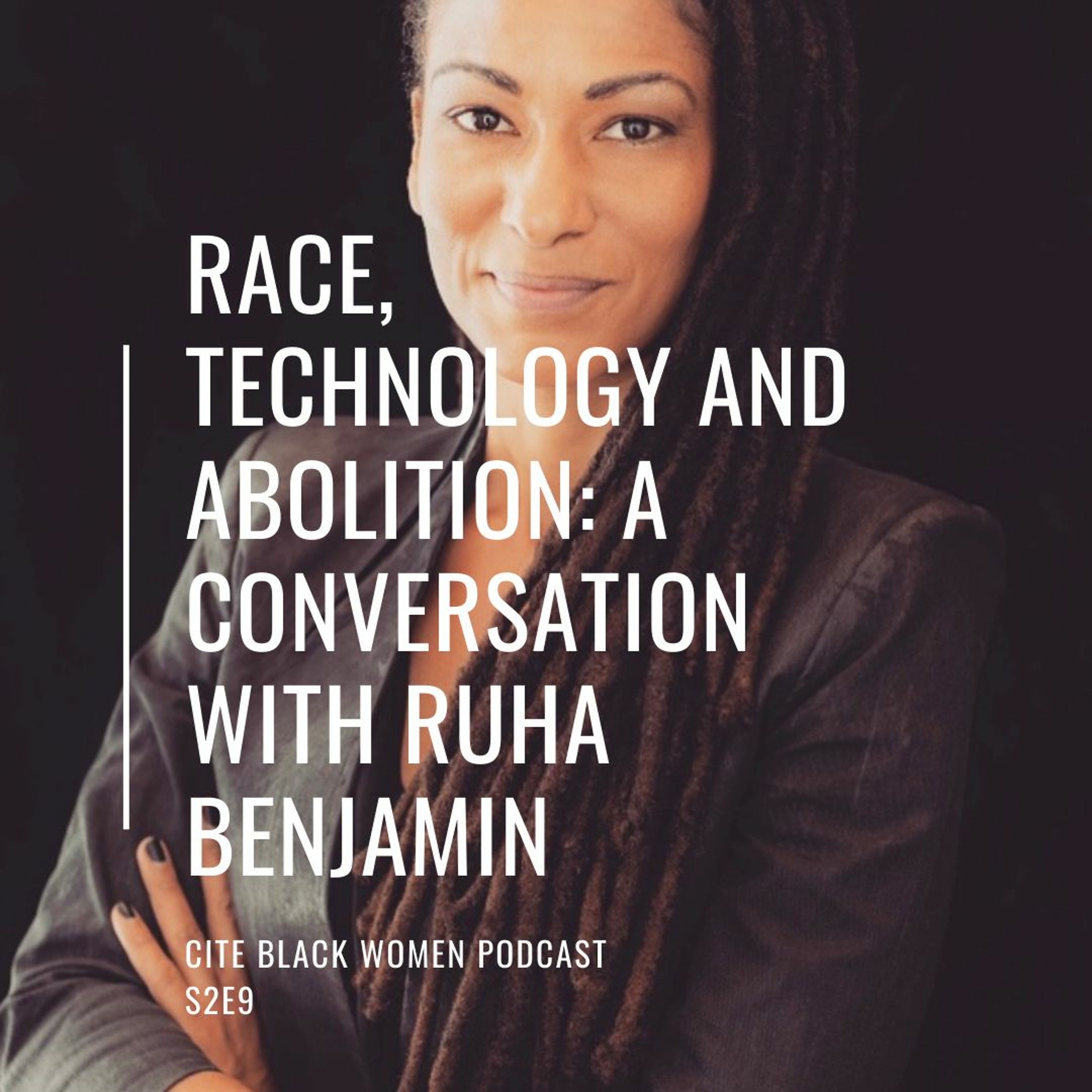
Cite Black Women PodcastS2E9: Race, Technology and Abolition - A Conversation with Ruha BenjaminRace is coded into every aspect of our technological lives, from automatic soap dispensers to Zoom calls. In this episode, host Christen Smith sits down with Prof. Ruha Benjamin of Princeton University to her work on racial coding, how racism and technology work hand in hand, and what we can do to create abolitionist futures despite this racism.
Ruha Benjamin is Associate Professor of African American Studies at Princeton University, author of the award-winning book Race After Technology: Abolitionist Tools for the New Jim Code (2019), and founding director of the Ida B. Wells Just Data Lab, which brings together students...
2020-09-0840 min
Factually! with Adam ConoverTechnology and Race with Ruha BenjaminPrinceton University professor Ruha Benjamin joins Adam to reveal the issues at play at the intersection of technology and race, her concept of the “New Jim Code", digital redlining and and how the technology can’t be relied on to solve what are ultimately social problems.
Learn more about your ad choices. Visit megaphone.fm/adchoices
See Privacy Policy at https://art19.com/privacy and California Privacy Notice at https://art19.com/privacy#do-not-sell-my-info.
2020-09-021h 02
REWORKRerun - Breaking the Black Box Basecamp co-founder David Heinemeier Hansson sparked a national controversy this week when he posted a series of livid tweets about how his wife received a much lower credit limit than he did on their Apple Cards, despite applying with the same financial information. What began as a rant against opaque algorithms turned into a regulatory investigation and more. In this episode, Dr. Ruha Benjamin of Princeton University and entrepreneur Mara Zepeda, co-founder of the XXcelerate Fund and Zebras Unite, talk about how the tech and financial sectors perpetuate systemic inequalities and how to start repairing the damage—or building something mo...
2020-08-2556 minTechnically SpiritualDigital BypassingIs technology racist? Most of us believe that technology is neutral— a fair and equal space for all to exist freely. Many scholars including Ruha Benjamin, Safiya Noble, and Joy Buolamwini highlight the many ways that this is not true, and particularly illustrate how technology perpetuates racism. In this episode, Prerna synthesizes the work of these Black women and shares examples of bias that has been coded into a wide range of our technological systems. She introduces the term digital bypassing to explore our tendency to avoid facing the reality of injustice in the digital space and challenges us to...
2020-07-2432 min
Rendering Unconscious Podcast: Psychoanalysis & CultureRU88: DAMIEN PATRICK WILLIAMS - TECHNOLOGY & ANTI-BLACK SURVEILLANCEDamien Patrick Williams is a PhD candidate at Virginia Tech in the Department of Science, Technology and Society. His research areas include ethics, epistemology, philosophy of technology, philosophy of mind, nonhuman intelligence, machine consciousness, comparative religious traditions, human biotechnological interventions and the occult.
You can follow his work at:
https://twitter.com/Wolven
http://www.afutureworththinkingabout.com
https://www.patreon.com/Wolven
https://twitter.com/techn0ccult
http://www.technoccult.net
http://tinyletter.com/technoccult
Mr. Williams contributed to Rendering Unconscious the book. "Better than This" in Rendering Unconscious: Psychoanalytic Perspectives, Politics and Poetry (2019): store.trapart.net/details/00000
Mr. Williams...
2020-06-291h 06
City Arts & LecturesEthics in Technology, with Ruha Benjamin and Meredith WhittakerRuha Benjamin studies the social dimensions of science, technology, and medicine. In books like “Race After Technology”, and “People’s Science”, Benjamin examines how racial inequality plays out in every corner of civic, scientific, and social life. Meredith Whittaker co-founded the AI Now Institute, a
research center examining the social implications of artificial intelligence in criminal justice, law enforcement, housing, and education.
On June 1, 2020, Ruha Benjamin and Meredith Whittaker spoke via video conference. The two talked about biases built into every day technologies, how COVID-19 disproportionately harms marginalized communities, and ethical concerns over the increased power tech elites n...
2020-06-141h 01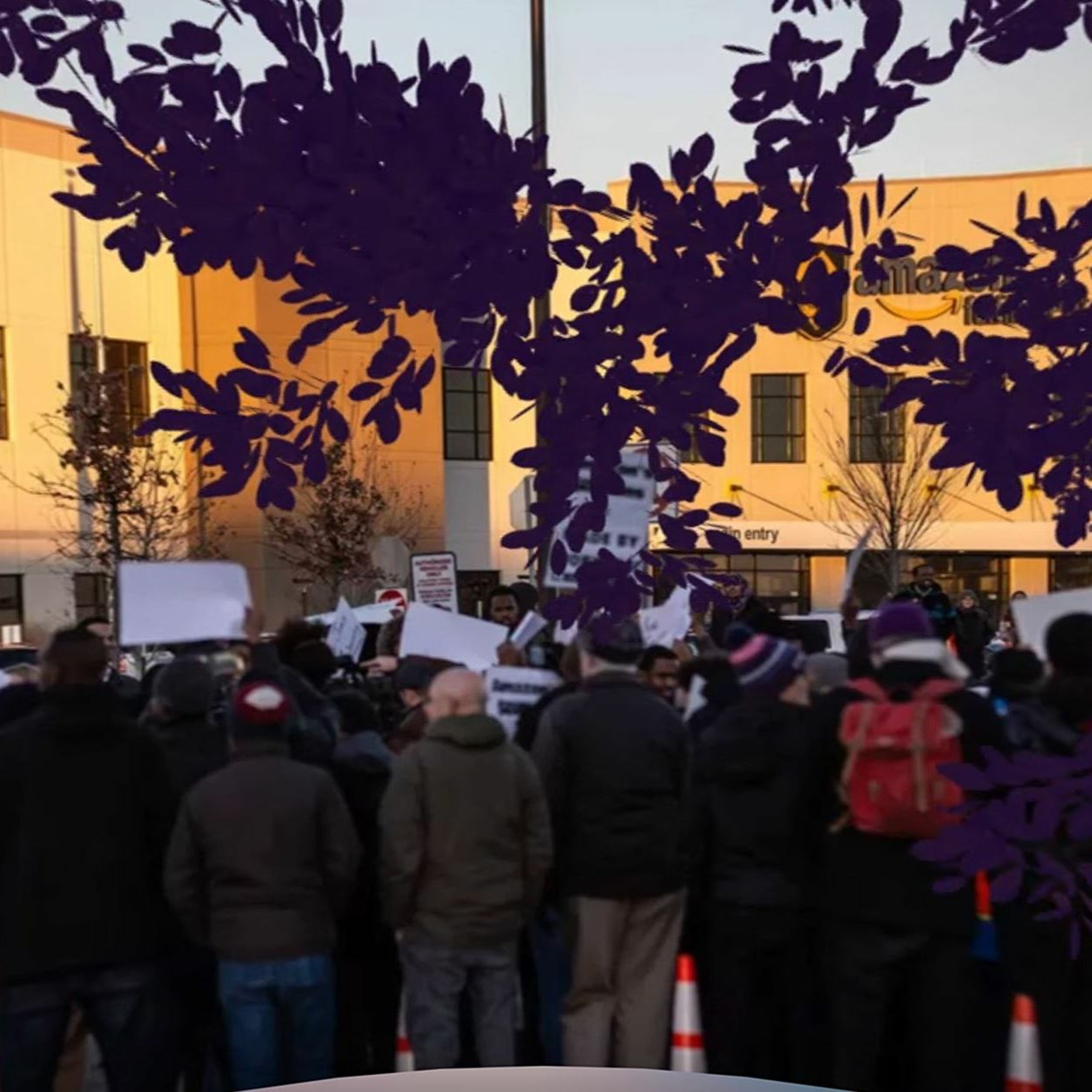
Decolonization in Action PodcastS2E8 I don't center dominationIn this episode, edna bonhomme interviews Hiba Ali and they discuss COVID-19, multimedia performance art, surveillance, global shipping, Amazon, and modes of healing. Hiba Ali is a digital artist, educator, scholar, DJ, experimental music producer and curator based across Chicago, IL, Austin, TX, and Toronto, ON. Her performances and videos concern surveillance, womxn of colour, and labour. She conducts reading groups addressing digital media and workshops with open-source technology. She is a PhD candidate in Cultural Studies at Queens University, Kingston, Canada. She has presented her work in Chicago, Stockholm, Toronto, New York, Istanbul, São Paulo, Detroit, Dubai, Austin, V...
2020-06-0536 min
The Radical AI PodcastLove, Challenge, and Hope: Building a Movement to Dismantle the New Jim Code with Ruha BenjaminHow is racism embedded in technological systems? How do we address the root causes of discrimination? How do we as designers and consumers of AI technology reclaim our agency and create a world of equity for all? To answer these questions and more The Radical AI Podcast welcomes Dr. Ruha Benjamin to the show.
Dr. Benjamin is Associate Professor of African American Studies at Princeton University and founder of the Just Data Lab. She is author of People’s Science: Bodies and Rights on the Stem Cell Frontier (2013) and Race After Technology: Abolitionist Tools for the New Jim Co...
2020-05-0659 min
Season of the BitchEpisode 128: History Of PandemicsU THOUGHT WE WOULD GO THROUGH THIS HELLSCAPE WITHOUT SOME HISTORICAL CONTEXT? think again!
This week we r talkin' to the SMARTEST pandemic academic we know! Elise Mitchell! She is joining us to chat all about past pandemics AND this one.
Please check out her piece in The Atlantic (https://www.theatlantic.com/ideas/archive/2020/03/humanitys-long-history-of-making-epidemics-worse/607780/?utm_source=share&utm_campaign=share) and her piece in Black Perspectives(https://www.aaihs.org/if-bitterness-were-a-whetstone-on-grief-history-and-covid-19/).
You can also check out this discussion with some leading historians of race, medicine, and public health: Dr. Deirdre Cooper Owens, University of Nebraska-Lincoln, Dr. Samuel Kelton...
2020-05-0148 minSeeing Red: Nebraska Politics From the LeftMedical Data For ProfitApril and Melody have dusted off their mics to come back and talk about Nebraska politics. In this episode Amanda Gailey comes to talk about the new for-profit company that has set up shop in Utah, Iowa, and now Nebraska to collect the medical data of everyone in the state.
Check out our book shoutouts -
Shoshana Zuboff “The Age of SurveillanceCapitalism”
Ruha Benjamin “Race After Technology”
Collected Poems W.H. Auden
The Poems of Emily Dickinson
2020-04-3048 min
Visions of EducationEpisode 141: Abolitionist Tools for the New Jim Code with Ruha BenjaminIn Episode 141, Dan, Michael, and Dan’s doctoral students chat with Dr. Ruha Benjamin of Princeton University about her scholarship and new book, “Race After Technology: Abolitionist Tools for the New Jim Code.”
2020-04-061h 03
Abolition Science RadioAbolition Science Reading GroupWe're excited for the very first Abolition Science Reading Group starting April 23rd. We'll be reading Race after Technology by Dr. Ruha Benjamin, Associate Professor of African American Studies at Princeton University. RSVP on our website!
2020-04-0311 min
Popular Education RadioRuha Benjamin, Race After Technology: Abolitionist Tools for the New Jim CodeHELLO! It's great to be back! In this episode I interview Professor Ruha Benjamin on her book Race After Technology. Tune in to hear about the intersection of race, inequality and technology-- some scary stuff but Ruha Benjamin breaks it down in a way that will leave you feeling empowered!!If you've ever wondered: "Are Robots Racist?" I've got the answer for you! -- Also, if you wish to borrow my copy of the book let me know!
Thank you all for the patience and love, wash your hands!
For comments, questions or concerned (within reason...
2020-03-251h 10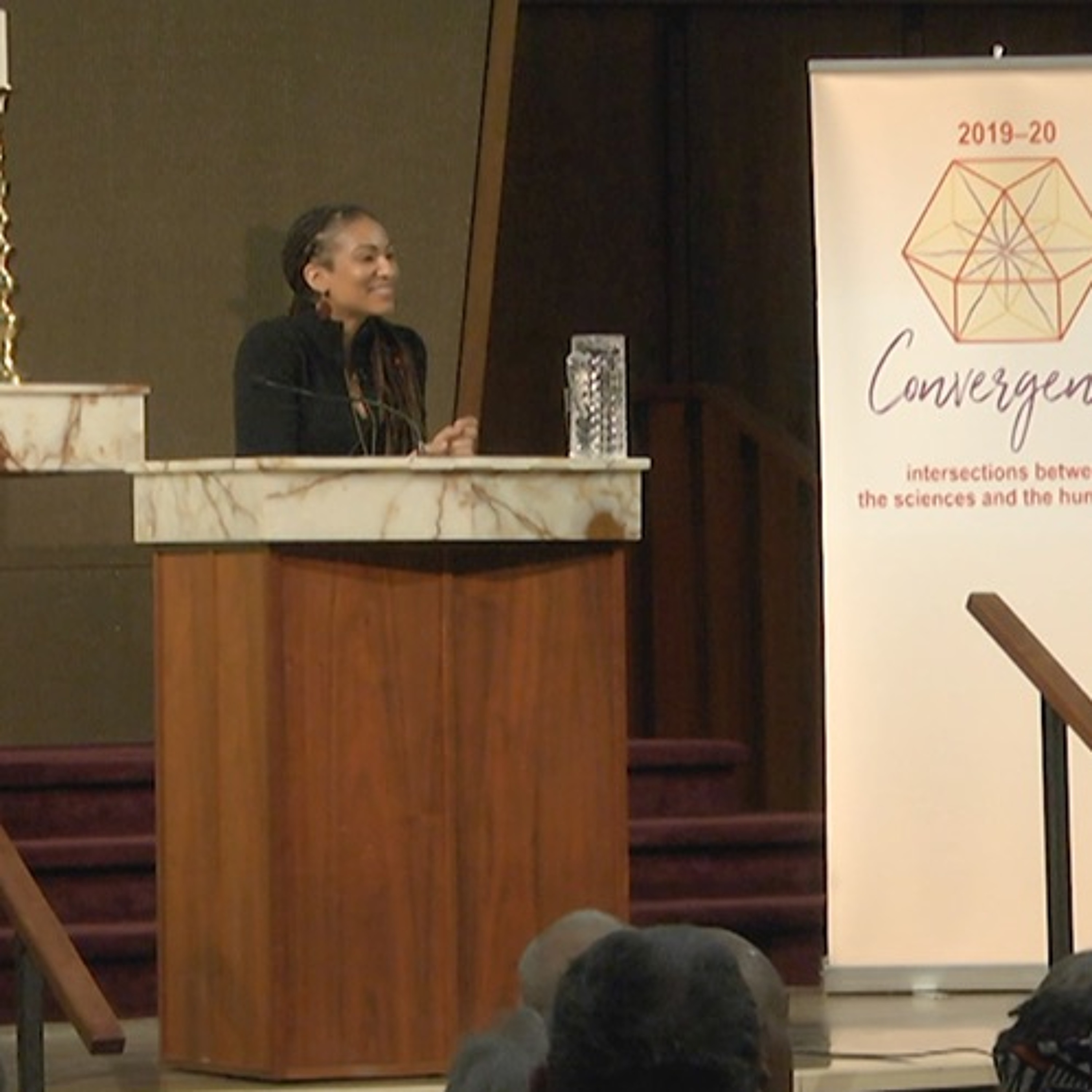
UO TodayRuha Benjamin: "Beyond Buzzwords: Reimagining the Default Settings of Technology and Society"Ruha Benjamin presents the concept of the “New Jim Code” to explore a range of discriminatory designs that encode inequity: by explicitly amplifying racial hierarchies, by ignoring but thereby replicating social divisions, or by aiming to fix racial bias but ultimately doing quite the opposite. Benjamin considers how race itself is a kind of tool designed to stratify and sanctify social injustice and discuss how technology is and can be used toward liberatory ends. Benjamin challenges us to question not only the technologies we are sold, but also the ones we manufacture ourselves.
2020-02-261h 11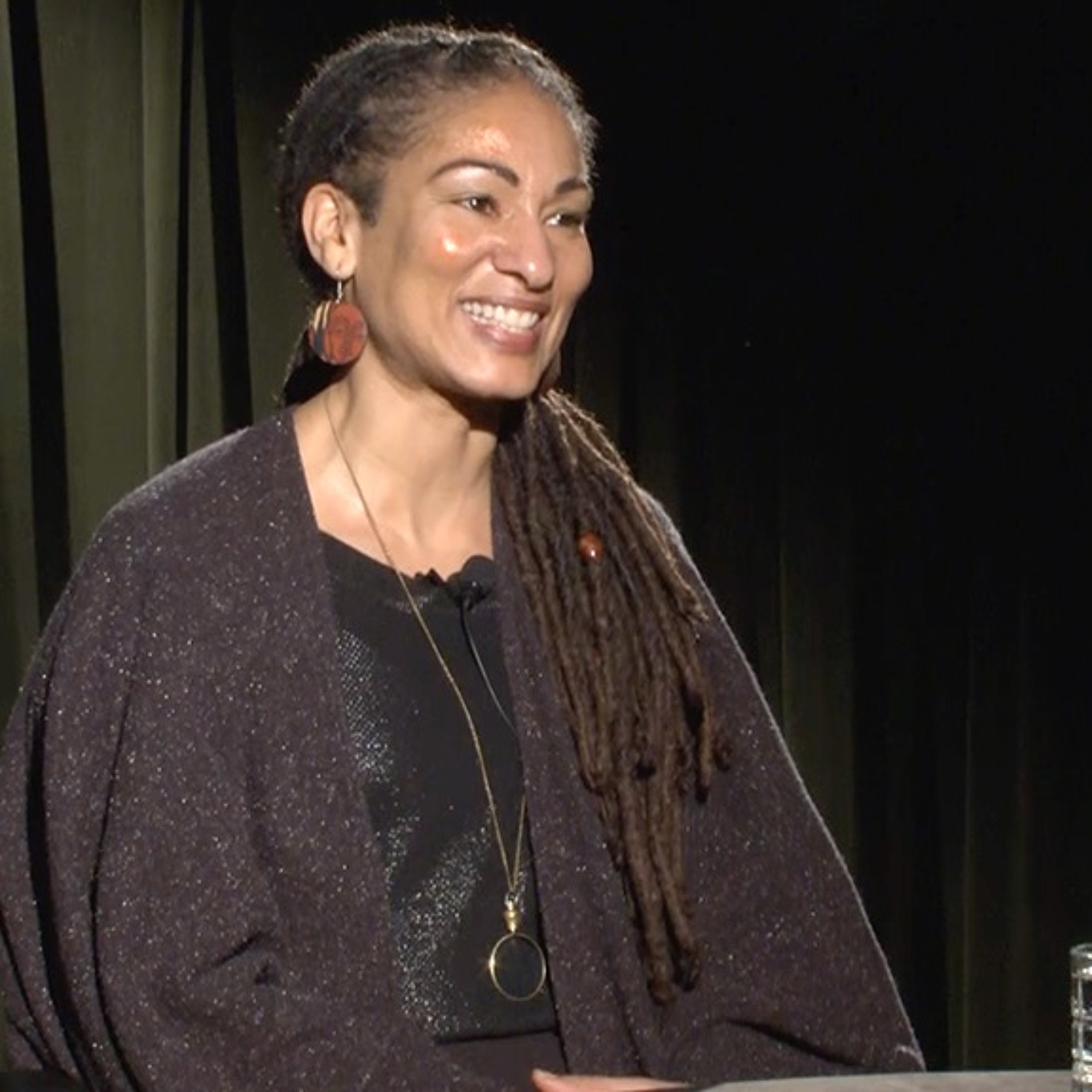
UO TodayUO Today With Ruha BenjaminRuha Benjamin, associate professor of African American Studies at Princeton University, is the author of Race After Technology: Abolitionist Tools for the New Jim Code. She discusses how new technologies encode old forms of segregation and gives some examples of bias in technology. Benjamin explains why humanists and social scientists should be integral participants in the tech industry. Benjamin gave a talk titled "Beyond Buzzwords: Reimagining the Default Settings of Technology and Society" on February 4, 2020 as the Oregon Humanities Center's 2019-20 Cressman Lecturer. Her talk was part of the "Convergence: intersections between the sciences and humanities" series.
2020-02-0628 min
#causeasceneRuha Benjamin“When I think about the role of technical systems…the inequity becomes even more encoded, subtle and it may seem like it’s operating where race is not explicit…The designers are not taking explicit note of race and yet racial disparities are being reproduced.” Ruha Benjamin is Associate Professor of African American Studies at Princeton University, founder of […]
2020-01-0858 min
Data & SocietyRace After TechnologyRuha Benjamin discusses the relationship between machine bias and systemic racism, analyzing specific cases of “discriminatory design” and offering tools for a socially-conscious approach to tech development. In "Race After Technology: Abolitionist Tools for the New Jim Code," Ruha Benjamin cuts through tech-industry hype, from everyday apps to complex algorithms, to understand how emerging technologies can reinforce White supremacy and deepen social inequity. Presenting the concept of “the new Jim Code,” she shows how a range of discriminatory designs encode inequity by explicitly amplifying racial hierarchies; by ignoring but thereby replicating social divisions; or by aiming to fix racial bias but...
2019-11-2635 min
New Books in TechnologyRuha Benjamin, "Race After Technology: Abolitionist Tools for the New Jim Code" (Polity, 2019)From everyday apps to complex algorithms, Ruha Benjamin cuts through tech-industry hype to understand how emerging technologies can reinforce White supremacy and deepen social inequity.In Race After Technology: Abolitionist Tools for the New Jim Code (Polity, 2019), Benjamin argues that automation, far from being a sinister story of racist programmers scheming on the dark web, has the potential to hide, speed up, and deepen discrimination while appearing neutral and even benevolent when compared to the racism of a previous era. Presenting the concept of the “New Jim Code,” she shows how a range of discriminatory designs encode inequ...
2019-11-1954 min
REWORKBONUS - Breaking the Black Box Basecamp co-founder David Heinemeier Hansson sparked a national controversy this week when he posted a series of livid tweets about how his wife received a much lower credit limit than he did on their Apple Cards, despite applying with the same financial information. What began as a rant against opaque algorithms turned into a regulatory investigation and more. In this episode, Dr. Ruha Benjamin of Princeton University and entrepreneur Mara Zepeda, co-founder of the XXcelerate Fund and Zebras Unite, talk about how the tech and financial sectors perpetuate systemic inequalities and how to start repairing the damage—or building so...
2019-11-1557 min
Function with Anil DashAmerican as Apple Pie: How Racism Gets Baked into TechnologyAnil speaks with Dr. Ruha Benjamin, Associate Professor in the Department of African American Studies at Princeton University and author of Race After Technology, about design discrimination. They discuss how systemic racism is replicated in the technology we use and how tools like artificial intelligence, machine learning and software used in the criminal justice system are shaped by racial bias.
Then he speaks with James Cadogan, VP of Criminal Justice, and Kristin Bechtel, Director of Criminal Justice Research, for Arnold Ventures, a non-profit that funds the Public Safety Assessment, a tool used by judges that predicts a person's likelihood to...
2019-10-231h 00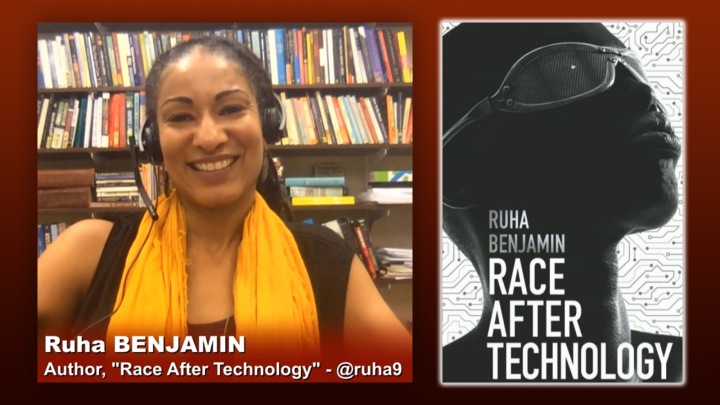
Triangulation (Audio)Ruha Benjamin: Race After Technology - Abolitionist Tools for the New Jim Code
Ruha Benjamin, Associate Professor of African American Studies at Princeton University, joins Mikah Sargent to talk about her new book "Race After Technology: Abolitionist Tools for the New Jim Code." They discuss how emerging technologies can reinforce and amplify racial biases and ways we could solve this problem.
Buy "Race After Technology": https://amzn.to/2Bj8ICE
Host: Mikah Sargent
Guest: Ruha Benjamin
Download or subscribe to this show at https://twit.tv/shows/triangulation.
2019-10-181h 08
Triangulation (Video)Ruha Benjamin: Race After Technology - Abolitionist Tools for the New Jim Code
Ruha Benjamin, Associate Professor of African American Studies at Princeton University, joins Mikah Sargent to talk about her new book "Race After Technology: Abolitionist Tools for the New Jim Code." They discuss how emerging technologies can reinforce and amplify racial biases and ways we could solve this problem.
Buy "Race After Technology": https://amzn.to/2Bj8ICE
Host: Mikah Sargent
Guest: Ruha Benjamin
Download or subscribe to this show at https://twit.tv/shows/triangulation.
2019-10-181h 08